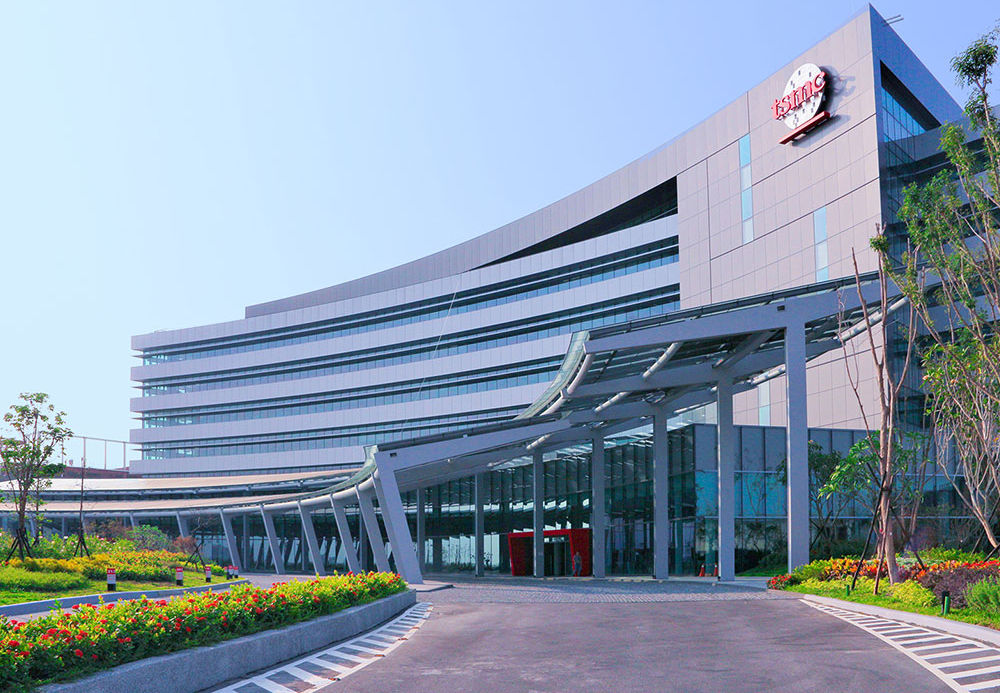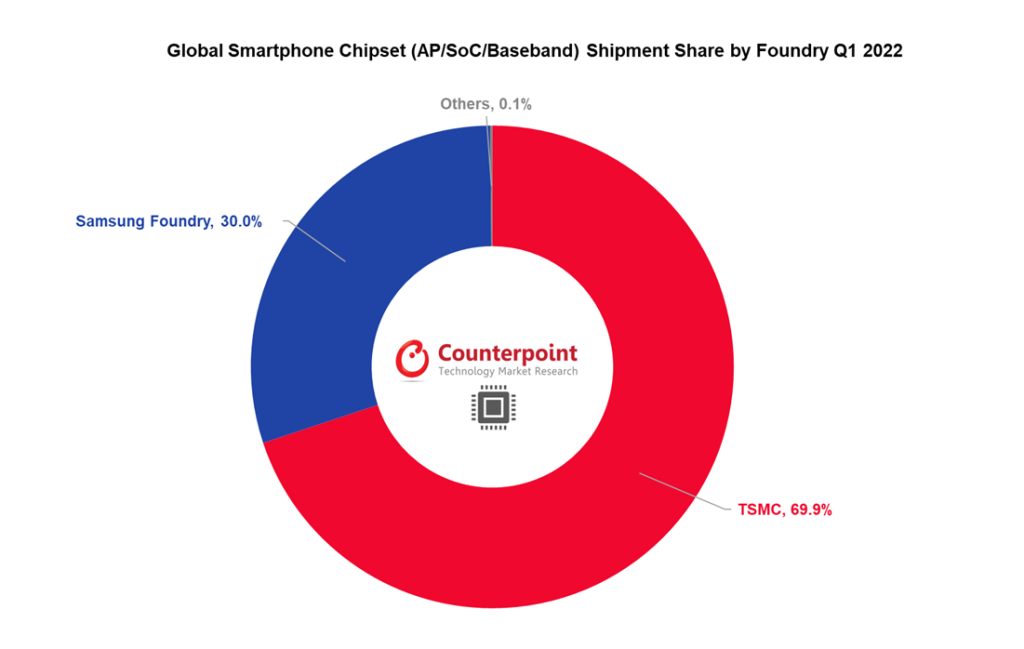

According to Counterpoint’s Foundry and Chipset Tracker, global smartphone chipset (SoC/AP+Baseband) shipments fell 5% YoY in Q1 2022 due to seasonality, reduced demand in China following lockdowns, and excess shipping from several chipset makers in Q4 2021.
Nevertheless, as the chipset ratio switched toward more expensive 5G devices, this decline was somewhat offset by solid growth in chipset revenue, which increased by a respectable 23% YoY in Q1 2022. The majority of the main chipsets used in smartphones, including the System-on-Chip (SoC) and discrete Application Processors (AP), including cellular modems, were manufactured by TSMC, the industry’s largest manufacturer. After TSMC, Samsung Foundry was the second-largest foundry, making 30% of the chipsets for smartphones around the world.


In Q1 2022, shipments of smartphone chipsets made by TSMC decreased by 9% yearly. Owing to the annual fall in shipments of MediaTek smartphone chipsets and Qualcomm’s decision to manufacture the X60 baseband at Samsung Foundry. Furthermore, in 2022, Qualcomm’s dual sourcing approach will contribute additional volumes to TSMC. A further increase in market share for smartphone chipsets for TSMC in 2022 will be made possible by the ramp-up of the 4nm flagships by Qualcomm, Apple, and MediaTek.
TSMC obtained 65% of the market share for all smartphone chipsets manufactured on advanced nodes (4nm, 5nm, 6nm, and 7nm). TSMC began mass production of its most advanced 4nm manufacturing node in Q1 2022. with MediaTek’s Dimensity 9000 SoC. Because Qualcomm will use two suppliers for its upcoming Snapdragon 8+ Gen 1 SoC, which will be based on 4nm technology, sales of TSMC’s 4nm node-based smartphone chipsets are expected to grow even more. The company mentioned that it will have N2 2nm process technology available in 2025 and also announced five 3nm process technologies.
Commenting on the Foundry Landscape for Smartphone Segment, Senior Research Analyst, Parv Sharma, said,
Foundries are extremely high CAPEX, cutting-edge technology businesses which have led to a duopoly for manufacturing advanced chipsets for smartphones. TSMC and Samsung Foundry together control the entire smartphone chipset market and TSMC is more than double Samsung in terms of manufacturing scale and market share. TSMC CAPEX spending is much higher than the competitors. It will invest $100 billion between 2021-2023 in 5/4nm and 3nm chip fabrication facilities, WFE, 3D packaging, and ramp up for 5/4nm and 28nm to meet the growing demand. Thus enabling TSMC to capture a large share in the advanced nodes.
Commenting on Samsung Foundry’s performance, Senior Analyst Jene Park, said,
Samsung Foundry captured around 30% share of the global smartphone chipset shipments thanks to Qualcomm and Samsung Semiconductor’s internal Exynos chipset division. Despite relatively lower yield rates for the leading 4nm process node, Samsung Foundry led the leading nodes (4nm & 5nm) smartphone chipset shipments with a healthy 60% share followed by TSMC which captured a 40% share in Q1 2022. The 4nm shipments at Samsung Foundry were driven by Qualcomm Snapdragon 8 Gen 1 which has gained more than 75% share in the Samsung Galaxy S22 series in just one quarter. Samsung Foundry also benefitted from refreshed mid-tier 5nm based 5G chipset Exynos 1280 for its higher volume Galaxy A53 and A33 smartphones.
